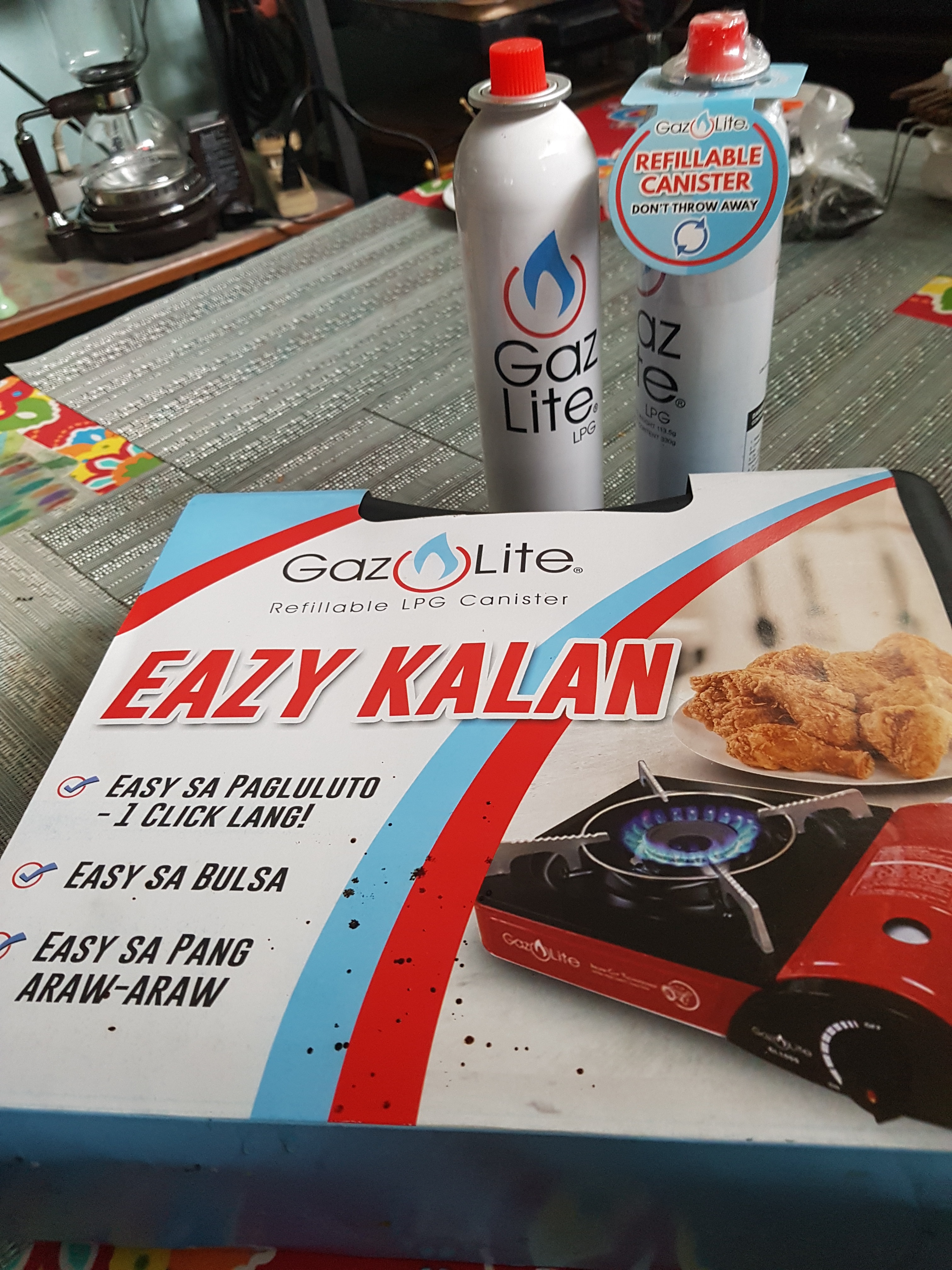‘Tingi’ LPG hits the market

A Gaz Lite kit, which will be available in “sari-sari” stores, consists of a single-burner stove and two LPG canisters.—CONTRIBUTED PHOTO
Filipinos can now buy liquefied petroleum gas (LPG) “tingi” or in small portions.
This as Pascal Resources Energy, Inc. has responded to some Filipinos’ preference for buying tingi, rather than in bulk (resulting in the development of the so-called sachet retailing), with Gaz Lite, or LPG in canisters.
The company, a pioneer and top player in the LPG industry in the Philippines as retailer/distributor, says the LPG in canisters are similar but not the same as butane containers that fuel tabletop stoves in Asian restaurants, available in neighborhood “sari-sari” stores.
Not only will consumers be able to get LPG at a price that is easier to manage (LPG retailers said “happy new year” to consumers by starting 2020 with a price hike) but being able to get the fuel from their “suki” sari-sari store reduces the chance of their not being able to get the fuel when their tanks become empty at the most inconvenient times—like when they have to do a lot of cooking for the holidays when distributors are also on holiday.
First-time Gaz Lite users will have to buy a whole cooking kit consisting of one portable, single-burner Eazy Kalan and two refillable, returnable canisters, which Pascal also plans to make available in sari-sari stores. When a canister is empty, the user can exchange it for a full container at a sari-sari store.
Article continues after this advertisementMuch like the way soda bottles used to be retailed, returning an empty canister makes the LPG cheaper. Refill is only P65 while a filled new 330-gram canister will cost P145.
Article continues after this advertisementNelson C. Par, Pascal chair and chief executive officer, said Gaz Lite was an initiative to make the more efficient, cleaner and safer LPG accessible physically and financially to ordinary Filipinos.
The innovative idea was initially developed as a corporate social responsibility (CSR) project of Pascal, also known as PR Gaz.
“The idea was simple—address energy poverty plaguing the country, particularly in the field of clean cooking [as] majority of the population still relies on traditional fuels to prepare daily meals,” the company said. “We then spent three years perfecting our product, establishing partnerships and educating the market.”The CSR advocacy project evolved into a full-scale social enterprise and, in February 2018, the company ventured into what it described as “our own continuing mission of changing lives – one home, one family, one kitchen at a time.”
Siu Ping Par, Pascal president, explained the underpinnings of the CSR initiative: “Three billion people (all over the world) are exposed to toxic fumes. In Asia, four million people, particularly women and children, face the health hazards of indoor pollution.”
She pointed out that more than 60 percent of the Philippine population still use solid fuel like wood and charcoal. Women and very young children were most at risk from indoor pollution as they spent more time at home.
Matthew Par, assistant vice president for brand and marketing, said Gaz Lite was “the world’s first refillable aluminum LPG canister. Although the design was adapted from the oxygen tank used by scuba divers, he said Gaz Lite was a completely new product.
Matthew revealed that enterprising Filipinos had made a business refilling discarded butane canisters with LPG. While it made LPG afforable, the practice posed risks for both refillers and users.
Nelson said Gaz Lite canisters were assembled and would be refilled only in the company’s plant. Proper handling could make a canister reusable in 4-7 years.
As a CSR project, Gaz Lite had already achieved some success in Visayas and Mindanao for the convenience – financially and physically – it offered.
Pascal is now bringing its product to a wider audience, holding formal launches in Manila and Cebu, as it recognized that even in big metropolitan areas, many people remained dependent on solid fuel or kerosene. —CONTRIBUTED